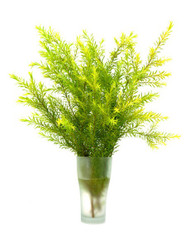Why is Tea Tree so well known?
Apr 21st 2021
Posted by Amrita Aromatherapy
Tea Tree oil is said to have a wealth of therapeutic benefits. It is known as one of the most powerful immune system stimulants in the world of aromatherapy.
ABOUT THE TEA TREE PLANT
The tea tree plant is a small, shrub-like tree with needle-like leaves. It has heads of yellow or purplish flowers. Other trees related to the tea tree are clove, eucalyptus, myrtle and niaouli. Tea tree is classified as an evergreen. The essential oil is distilled from the leaves and twigs.
HOW HAS TEA TREE TRADITIONALLY BEEN USED?
Tea Tree Essential Oil is native to Australia, where generations of aboriginal people have used the plant for healing. The name “tea tree” refers to the practice of drinking an infusion, or “tea,” of the leaves as a healing herbal drink. This is said to have been first observed by the sailors on Captain Cook’s ship in the eighteenth century. Tea Tree is also used as an amazing household cleaner.
In World War II, cutters and producers of Tea Tree Essential Oil were exempt from military service until enough essential oil had been accumulated. Tea Tree Essential Oil was issued to each soldier and sailor to be used to treat any tropical infections, wounds and other injuries.
HOW IS TEA TREE USED NOWADAYS?
It has been used in treating fungal, viral and bacterial infections. Its germicidal action is not as strong as that of more aggressive oils like oregano; however, its great advantage is that it is mild and not a skin irritant, so it can be applied for long periods of time.
It is also known for its remarkable skin-healing properties and is often suggested to help treat everything from acne, bug bites and sunburn to athlete's foot and dandruff.
Its antiseptic and analgesic properties make it perfect for treating all manner of infections, while offering soothing pain relief.
You can add it to a lotion or to a carrier oil by diluting it to a maximum of 10-20% (50-100 drops per tablespoon). Apply to affected areas. Although it is non-toxic and non-irritant, sensitization reactions are possible in some individuals.
What are your favorite ways to use Tea Tree essential oil? Please comment below so all can benefit.
Disclaimer: The statements made in this blog have not been evaluated by the U.S. Food and Drug Administration (FDA). They are not intended to diagnose, cure or prevent any disease. If a condition persists, please contact your physician or healthcare provider. The information provided is not a substitute for a face-to-face consultation with a healthcare provider, and should not be construed as medical advice.
Original Published: 2016-06-27 / Last Modified: 2021-10-11

